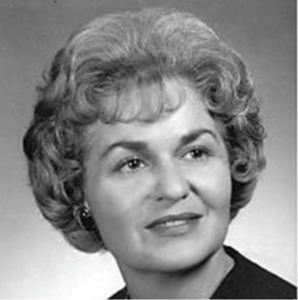Champion for women journalists
 Reporter, editor and Michigan Women’s Press Club founder Luise Ruth Leismer Mahon accomplished as much in a career shortened by half as many journalists do in twice the time.
Reporter, editor and Michigan Women’s Press Club founder Luise Ruth Leismer Mahon accomplished as much in a career shortened by half as many journalists do in twice the time.
Leismer Mahon made an impact up and down the Lower Peninsula, in conventional newsrooms, with women journalists across the state and as the only journalist trusted by two Indigenous tribes.
Leismer Mahon struggled early. By 14, she had lost both parents and had to drop out of school. After earning her high school diploma, she broke into journalism at her local Petoskey News-Review. She was women’s editor from 1956 to 1965 and had a side hustle as correspondent with the Detroit Free Press. Although sometimes her only credit was “correspondent,” people noticed her work.
Leismer Mahon joined the Royal Oak Daily Tribune in 1965 and soon jumped to The Detroit News. She wrote hundreds of articles about the booming suburbs, public policy and social issues such as illegal abortion, divorce, child neglect, and programs for people with disabilities. She was one of Michigan’s first female sports reporters.
Leismer Mahon mentored other women journalists and helped open newsrooms to them. Noticing her sisters were often overlooked for opportunities, she helped found and was first president of the Michigan Women’s Press Club. She was recognized for the best series written by a woman, about a child custody battle, and won awards for her feature writing and photography. She became the first reporter to win top awards from the press club’s journalism competition two years in a row, setting a high bar for other women journalists.
For 20 years, she was the only reporter credentialed to cover the annual tribal council of the Ottawa and Chippewa people in northern Michigan. Gov. George Romney named her to Michigan’s first Commission on Indian Affairs. Indigenous people adopted her and named her
“Te-ba-che-mo-qua.” It means “the writer” or “storyteller.”
